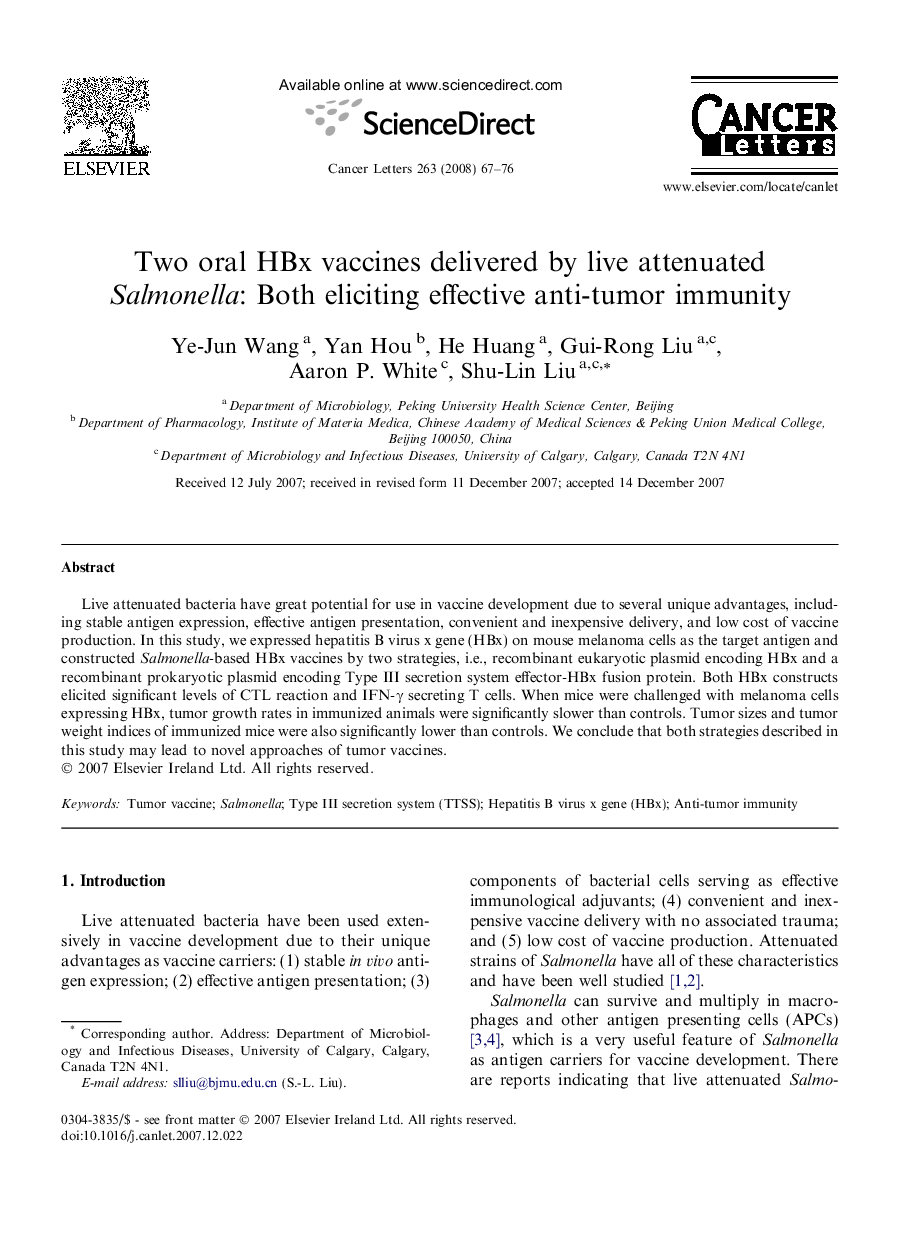| Article ID | Journal | Published Year | Pages | File Type |
|---|---|---|---|---|
| 2114954 | Cancer Letters | 2008 | 10 Pages |
Live attenuated bacteria have great potential for use in vaccine development due to several unique advantages, including stable antigen expression, effective antigen presentation, convenient and inexpensive delivery, and low cost of vaccine production. In this study, we expressed hepatitis B virus x gene (HBx) on mouse melanoma cells as the target antigen and constructed Salmonella-based HBx vaccines by two strategies, i.e., recombinant eukaryotic plasmid encoding HBx and a recombinant prokaryotic plasmid encoding Type III secretion system effector-HBx fusion protein. Both HBx constructs elicited significant levels of CTL reaction and IFN-γ secreting T cells. When mice were challenged with melanoma cells expressing HBx, tumor growth rates in immunized animals were significantly slower than controls. Tumor sizes and tumor weight indices of immunized mice were also significantly lower than controls. We conclude that both strategies described in this study may lead to novel approaches of tumor vaccines.
